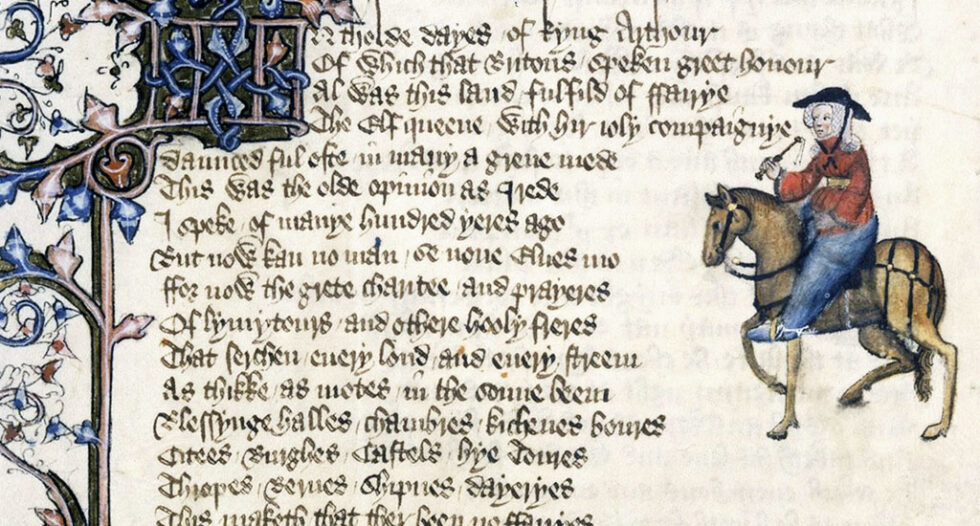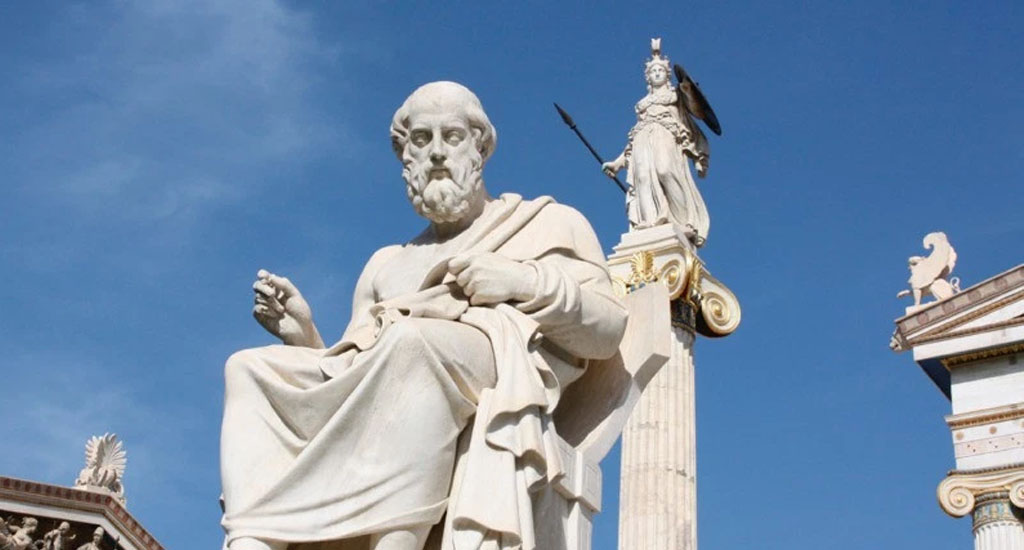
One of the things which characterizes the Christian West is our emphasis on literature, both printed and spoken. While most historians and classicists will put Boethius’ Consolations of Philosophy as the bookend for Roman antiquity, the beginning of our notions of the West start firmly with St. Augustine of Hippo. Known best for his book The City of God, the African-born profligate-turned-bishop is perhaps better known for his Confessions which turn upon the voice of an infant — presumed to be Christ as a child — singing a song in a courtyard garden: “Tolle! Lege! Tolle! Lege!”
Take up and read.
Much ink has been spilled — or thumbs worn down to nubs — over the Spotsylvania County Public Schools and their new crusade against “sexually explicit” material in public education and public libraries. Defenders of this criteria are super quick to share such sexually explicit material with others, begging the question as to why — if this material is so horrific — they are so keen to propagate it. Defenses such as “why, we are just raising awareness!” only serve to raise eyebrows.
Yet the wider problem is that such a criteria captures not just authors such as Toni Morrison and James Baldwin, but folds in the Great Books of the Western canon and many of the authors most Americans believe to be central to the Western canon: Shakespeare, Dante, Chaucer, Homer, Vergil, Euripides, the Holy Bible, and even Augustine himself.
Of course, one can read St. Augustine’s Confessions and realize rather quickly the depths of Augustine’s degeneracy. In fact, Augustine goes into embarrassingly lurid detail some might consider sexually explicit:
What was it that used to delight me, if not loving and being loved? But there was no boundary maintained between one mind and another, and reaching only as far as the clear confines of friendship. Instead, the slime of fleshly desire and the spurts of adolescence belched out their fumes, and these clouded and obscured my heart, and so that it was impossible to distinguish between the purity of love from the darkness of lust. (2.2.1)
Most individuals of good will are probably willing to admit that the graphic images included in some books are indeed beyond the pale. Just because it is in print doesn’t make a thing literature. Yet in reading Augustine, one is quick to detect the difference between explication and depravity — which may not square the circle, but it most certainly points out the overreach of those who demand that every instance of sexual explicitly puts the book upon the pile which should be burned.
Chaucer: The Granddaddy of Banned Books
Pregnant of moral virtue was his speech;
And gladly would he learn and gladly teach.— Chaucer, Canterbury Tales (d. 1400)
When my grandfather retired from Quantico Public Schools, they awarded him with a plaque which had the poem about the Clerk from the General Prologue from Chaucer’s classic The Canterbury Tales. My grandfather was known for his love of English as a language and consumed both Chaucer and Shakespeare prodigiously while at Fordham. While little of that collection of books remains, that love was certainly passed along.
Chaucer’s history as a banned book begins early, and not just for the sexually ribald passages. Chaucer’s mocking of the clergy was suspicious, his contempt for the nobility offending, and his general approach to society deemed utterly depraved — and none more depraved than Chaucer’s lady in waiting, the notorious Wyfe of Bath and her five husbands — among other paramours:
“I wolde no lenger in the bed abyde
If that I felte his arm over my syde
Til he had maad his raunsoun unto me.
Thanne wolde I suffre hym do his nycetee.
And therefore every man this tale I telle:
Wynne whoso may, for al is for to selle.
With empty hand man may none haukes lure,
For wynnyng wolde I al his lust endure
And make me a feyned appetit.
And yet in bacon hadde I nevere delit.”
First and foremost, the Wife of Bath refuses to have sex with her own husband until he pays for the privilege, then she only pretends to enjoy it, and then compares her husband’s member to bacon — or in the translator’s words, “an old salty piece of meat” where the play on words is infinite.
You read it in Chaucer first: bacon is better than sex.
Shakespeare’s Romeo and Juliet: Happy Daggers and Their Sheaths
Mercutio: Now will he sit under a medlar tree
And wish his mistress were that kind of fruit
As maids call medlars when they laugh alone.
O Romeo, that she were! Oh, that she were
An open arse, and thou a poperin pear.— Shakespeare, “Romeo and Juliet” Act 2, Scene 1 (1594)
Yeah — that one got missed in 11th grade English class for sure!
More operative? Juliet — who is the ripe old age of 13, ladies and gentlemen — before she dies offers the line, “O happy dagger! This is thy sheath! There rust and let me die.” For those who still possess their Latin, the word for sheath is vaginae and the Elizabethan slang for orgasm? Was to die. As for the happy dagger, I’ll let you figure that one out.
Don’t worry — all of Shakespeare is riddled these happy little daggers.
Dante: Women and Bestiality?!
Behold the beast, for which I have turned back;
Do thou protect me from her, famous Sage,
For she doth make my veins and pulses tremble.’“Thee it behoves to take another road,”
Responded he, when he beheld me weeping,
“If from this savage place thou wouldst escape;Because this beast, at which thou criest out,
Suffers not any one to pass her way,
But so doth harass him, that she destroys him;And has a nature so malign and ruthless,
That never doth she glut her greedy will,
And after food is hungrier than before.Many the animals with whom she weds,
And more they shall be still, until the Greyhound
Comes, who shall make her perish in her pain.— Dante, “Inferno” (1314)
One of Chaucer’s early influences, Dante’s she-wolf isn’t just known in antiquity for her sexual treachery and a ravenous appetite for all things. This she-wolf is also an indictment of that lowly class of humanity known as women. Or more accurately, all women as prostitutes. Prostitutes who do things. With animals. Things.
This is before we get in to Dante’s opinions on sodomy, where in the Inferno he describes sodomy as a mortal sin, whereas in Purgatorio it is merely described as a venial sin. Also — ignore the treatment of homosexuals in Canto 15. Never mind that the entire Divine Comedy is effectively a very long love note to one Beatrice Portinari — a woman married to an Italian banker whom Dante had the pleasure of meeting just twice.
Euripides: Orgies, Drugs, and Murder
“…up to the mountains where they wander, crazed of mind,
and compelled to wear my orgies’ livery.
Every woman in Thebes—but the women only—
I drove from home, mad. There they sit,
rich and poor alike, even the daughters of Cadmus,
beneath the silver firs on the roofless rocks.
Like it or not, this city must learn its lesson:
it lacks initiation in my mysteries;
that I shall vindicate my mother Semele
and stand revealed to mortal eyes as the god
she bore to Zeus.”— Euripedes, “The Bacchae” (405 BC)
Euripides The Bacchae is considered to be the best of the Greek tragedies, and for good reason. Dionysus is angry at King Pentheus for the daring to question Dionysus’ patrimony (that being Zeus). In punishment, Dionysus reveals that he has driven all of the women of the city mad, with them heading into the mountains to worship according to Dionysian rites led by none other than Pentheus’ own mother — Agave.
Cloaked as a stranger and telling of the wonders — and massacres — that are happening in the mountains, Pentheus gets curious and decides that he too wants to see these Dionysian rites. So the stranger leads him into the woods, bends a tree over, and allows Pentheus to witness these rites. When Pentheus is trapped on top of the tree, Dionysius reveals himself to the women, and the crazed mob rushes the tree — ripping it apart with their own hands and finally Pentheus himself.
When Agave presents the head of her own son to Pentheus’ father, there is much shock. Eventually Agave’s madness passes, and she realizes that she has participated in the slaughter of her own flesh and blood.
One can see the lesson of The Bacchae pretty clearly when one considers the old aphorism that it is better to be insane with the mob than sane alone. Pentheus could not control the Dionysian rites, and rather than make allowance for it? The Bacchae killed him — his own mother, at that. Layers upon layers here.
The Litany Gets Longer… and Bigger
This Absolon gan wype his mouth ful drie.
Dirk was the nyght as pich or as the cole,
And at the wyndow out she pitte hir hole.
And Absolon hym fil no bet ne wers,
But with his mouth he kiste hir naked ers— Chaucer, Canterbury Tales (The Miller’s Tale)
Short version? Absolom wants Alison to give him a kiss, so she sticks her butt out the window… and Absolom made out with Alison (kind of):
Ful savourly er he was war of this.
Gives new definition to the idea of consent, doesn’t it? Did Chaucer really have to use the word savory to describe this? It gets worse:
He felte a thyng al rough and longe yherd
And seyde, “Fy! Allas! What have I do?”
“Tehee,” quod she and clapte the wyndow to.”
I dunno — maybe Dante was right.
The wider point in all of this is that unless there’s actual coprophilia in any of the sexual images presently up for the banhammer in Spotsylvania, this has got to be far worse than anything shown so far. Or maybe they have a special reserve of this kind of stuff they keep for the cool kids (gross).
Yet it does go to show how medieval humor runs pretty close to middle school humor. Or more accurately, how middle school educations were lifted to consider things better than the equivalent of fart jokes — and that took some time.
So where do we draw the line? Do we ban cell phones which most certainly have these images? What about the cell phones of others in the inadvertent case where one student shows these ribald lines to another student? Do we ban vice on the scale of Milton? Do we ban vice to the degree where even the Great Books of the Western Canon are tossed out with all the other literature, pace the great conservative thinker Allan Bloom?
Take Up and Read
Coming back full circle, Augustine has the solution to the problem in his Confessions here he wonders whether or not he would have turned out better if never exposed to vice as a young man:
I pursued the meanest things in all of your creation, but abandoned you [i.e. God]. I was earth returning to earth. If I had been prevented from reading such works, I would have suffered, because I was not reading what would have actually caused me to suffer! It is shre madness to regard such literature as more respectable and fruitful than the texts by which I learned to read and write. (1.21.1)
Which is the voice of the first part; the voice of those who in the concern about vice and viciousness in the world simply seek to ban the medium — in our case, literature — rather than create resilient youth who can discern for themselves between what is good and evil.
Yet Augustine responds to such worries:
But now let my God cry aloud in my soul! Let you truth say to me, “Not so, not so!” For that primary teaching is certainly more valuable. Just think — I would rather forget the wanderings of Aeneas and all that stuff than the skill of reading and writing. But wait: there are curtains hanging across the doorways where literature is taught; yet they are symbols of a cloaking of error, as much as of a reverence owed to the mystery within. . . . Likewise, if I were to ask each of them what would cause the greater disruption to his life were he to forget it — either how to read and write, or the poetic fictions; surely anyone who has not completely lost his senses would see clearly what the reply must be? (1.22.1)
Augustine’s point is rather plain to most of us. For those who require it to be spelled out, it is far better to be literate than illiterate, precisely because while an illiterate person may never bump into vicious literature, a literate person will be able to discern between good and bad literature. Not to mention the fact that any clown can read degenerate pornography — literate or otherwise.
“Late have I loved you,” writes Augustine, “O Beauty ever ancient, ever new, late have I loved you! You were within me, but I was outside, and it was there that I searched for you.” Too many of us look outside rather than inside for vices. More preoccupied with the vices of others, we never bother to develop virtues within. The best and first step for this? Quite frankly, in the Western tradition, it is one simple word: reading. Or as Christ told Augustine:
Tolle! Lege!
…and there is plenty out there to read. When it comes to the books in the library, surely the offerings are wide and varied. Yet when the criteria of “sexually explicit” becomes so broad as to prohibit Shakespeare, Chaucer, Dante, Euripedes, Aeschylus, Vergil, Homer, etc. then it is no standard at all.
After all, with such a loose criteria, stuff like this would be banned immediately, right?
Yet she became more and more promiscuous as she recalled the days of her youth, when she was a prostitute in Egypt.There she lusted after her lovers, whose genitals were like those of donkeys and whose emission was like that of horses.
That is Ezekiel 23:19-20 — and far be it from me to start editing out Holy Scripture. I’m in sales, not management.
One small addendum at the end of a very long commentary. If as Christians we truly believe these three words — Christ is LORD — then we admit three things: (1) that Christ is present, (2) that it isn’t Christ was, or Christ will be, but that Christ is, and (3) that Christ is Lord of all things. The anxiety of the world should pass quite comfortably under that arch, and for all the degeneracy that is in the world and our efforts to stem the tide, this simple admission should be enough to set aside any fears or anxieties about what other people’s children might be reading.
Meanwhile, I have a lot of lege to tolle and do not have much sympathy for those worried about what others might or might not be reading. Illegitimi non carborundum — don’t let the bastards grind you down — might be better advice for that lot.





